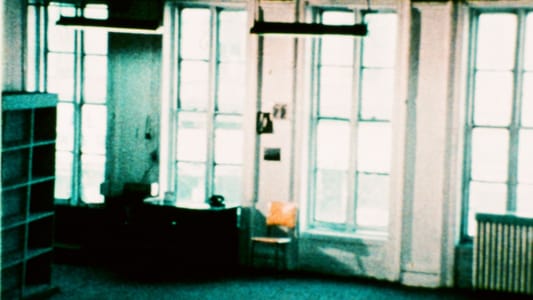|

(1967, directed by Michael Snow)
- inducted 2018 –
“Avant-garde filmmaking scares audiences away for a number of reasons, largely having to do with their implicit value
as markers of/comments on/new structures for understanding time. They move differently than other movies and frequently make
the most of a minute. Works like The Clock or 24 Hour Psycho deliberately ask us to not only spend a day gazing
at the machinery of cinema, understanding it as a force inside of and defining our lives. Films like this ask us to practice
our gaze, literally, to get used to looking at the world, aware of every second going by. This is a lot to ask of human beings
and so avant-garde cinema scares people. Meaning hides from plain sight, time ticks away, and we're watching something that
doesn't resemble other films but instead resembles us. Breathing, blinking, organically functioning, going nowhere in a hurry,
and getting there with only the accumulation of time arming us against the inevitable disappointment of returning to reality.
“Wavelength is useful not merely as perhaps the purest example of avant-garde cinema as an instrument of measuring
time, but also as the negative image of narrative. It is everything 'popular' cinema is not. The story is diffuse and handed
out in small doses over the 45 agonizing and beautiful minutes of the movie. It has no beginning or end, it's simply occurring,
like any given passage of our lives. It stares past, in fact, the action that its director has organized. It too means something,
but the film is not defined by the action. It is defined by its own action, a reflexive creation measured in the minutes it
ticks by and the slow inches and feet it travels (the length of a loft). The colors change, the sounds scream, clang, and
beguile. It's a blindfolded organism, cinema as an animal without peripheral vision, distilled simply into the journey forward.
There is nothing on the other side of the wall the zoom lens careens us toward because we cannot see it. There is no hindsight,
no returning to the image of the world we once held, no reliving the psychedelic trauma that brought us here. There is only
the ever-dwindling space of the loft and the promise that it must end.
“Wavelength has been dissected by dozens of critics, perhaps most eloquently by Michael Sicinski, who has approached
and re-approached the work for what feels to an admirer like most of his life. He knows the work intimately and Wavelength
very importantly encourages this relationship. He's written that ‘a viewing of Wavelength today remains unlike
any other cinematic experience imaginable,’ and indeed it's possessed of an uncommon almost divine intelligence regarding
the art form to which we sit in thrall, an endoscopy of the human experience, a plunge inside the superficially beautiful
body of the body cinematic. One has to imagine a time without measure before we could consider a moment when Wavelength's
impulse towards self-investigation will not be relevant.”
~ Scout Tafoya
|
|
|

